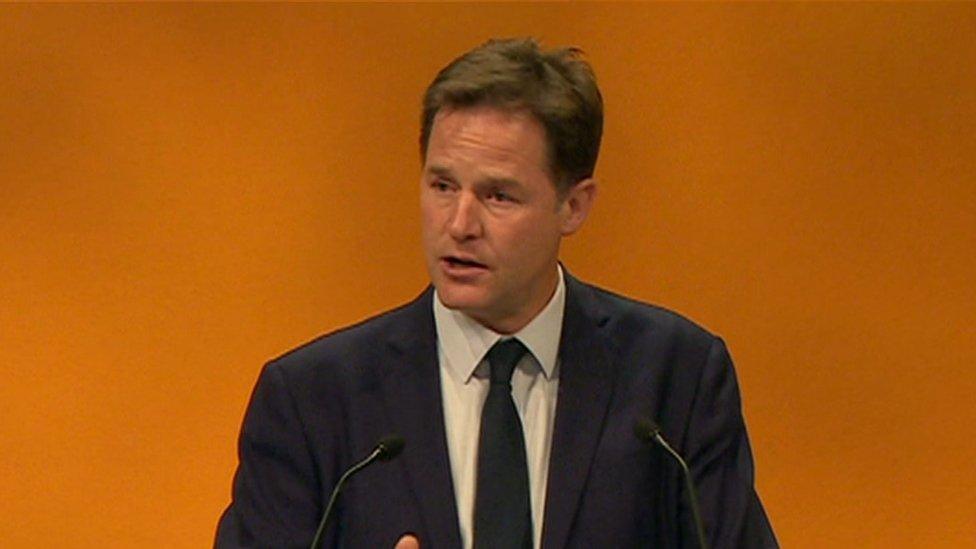University towns key to Lib Dem revival, says Simon Hughes
- Published

England's university towns hold the key to the Lib Dems' electoral revival, Simon Hughes has told activists.
The former Lib Dem deputy leader told a packed fringe meeting at the party's annual conference they were unlikely to regain their status as the UK's third party at the 2020 general election.
He predicted the SNP would continue to dominate Scotland.
He said the party could make progress at by-elections but it had to focus its resources carefully.
"We have to win back the seats we have recently held. The logical seats to win back at the next election are those from the Tories, because they are in the government," said the former justice minister.
"But actually we probably ought to win back the seats which are most naturally liberal and that's probably university towns and university cities.
"The Cambridges and Oxfords and the Baths and other places because that is probably where the most fertile territory for us should be."
Tuition fees
Mr Hughes was one of 48 Lib Dem MPs to lose their seat in May's general election rout.
The party had built up a strong following in university towns but had seen that wiped out after Nick Clegg's U-turn on tuition fees.
Mr Hughes, speaking at the Institute for Public Policy Research meeting in Bournemouth, said tuition fees was one of the three big mistakes the Lib Dems made in coalition with the Conservatives and acknowledged it was still harming them at the ballot box.
The other two mistakes were not opposing changes to housing benefit rules, dubbed the bedroom tax, and the wholesale reorganisation of the NHS.
Mr Hughes, who represents Bermondsey and Old Southwark in London, argued that more young people were now going to university, including those from poor backgrounds, since the tuition fees changes, and the real problem faced by students was the cost of living.
He said the party had to take the lead in campaigning to remain in the EU ahead of the referendum expected next year and show it was the party of "respect" for refugees, civil liberties and human rights, as well as coming up with "bold, radical" solutions to the housing crisis.
Its first major targets as it seeks to claw back ground were next year's elections in Scotland, Wales and English local authorities.
"We can build relatively quickly if we make big success next May and big success in the European referendum," added Mr Hughes.
- Published21 September 2015

- Published21 September 2015
